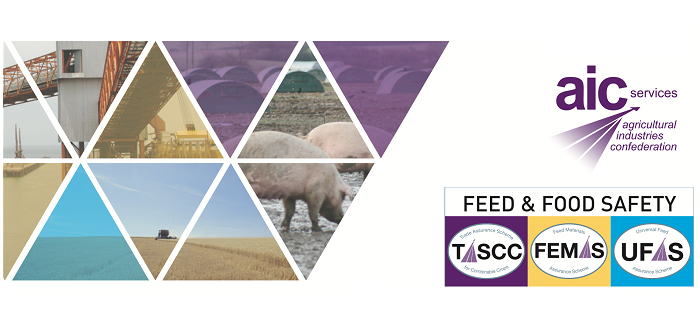The UK’s livestock feed industry is operating successfully as part of a “safe and transparent” supply chain, according to the findings of a new report produced by AIC Services, who manage the country’s feed assurance schemes.
“These schemes underpin much of the trade and are acknowledged as excellent examples of ’best practice’ and have been given ‘earned recognition’ status by both the Food Standards Agency and Food Standards Scotland,” said AIC. “This recognition has delivered significant savings for both government and industry, estimated to be in the region of £2 million per annum.”
Despite its upbeat assessment of current feed sector performance, however, AIC warns that today’s high level of control is only achieved and maintained by “continuing robust management” of the whole feed assurance supply chain.
The organisation also said that any failure to maintain sufficient control in any link in the supply chain could lead to increased feed and food incidents.
“Feed assurance has come a long way since the crises of the early/mid 90’s when BSE and Foot and Mouth disease caused major concern,” said AIC’s managing director, John Kelley. “Since then the industry has embraced feed assurance schemes, as well as monitoring programmes for undesirable substances, resulting in safe feed and food throughout the supply chain.”
Highlighting the importance of the UK’s schemes being recognised by other leading EU assurance bodies, he added that all such schemes must continue to lead and react to changes within the industry, as well as those driven by governments on feed safety issues and on the adoption of new technology.
“While the industry can be proud of its achievements in recent years, the new report recognises future challenges which must be addressed to ensure the UK continues to produce safe feed,” he said.
The feed assurance schemes managed by AIC are UFAS (Universal Feed Assurance Scheme), TASCC (Trade Assurance Scheme) and FEMAS (Feed Materials Assurance Scheme).


